The Best And Worst Technology Company Stocks In Q1 2017
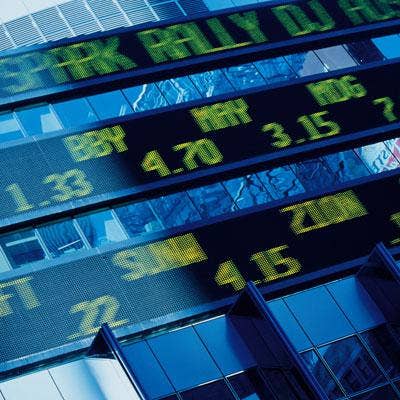
Tech Stocks: Gainers Beat Losers 2 To 1
The stock markets were on a roll following the November election and through much of the first quarter – what some called the "Trump bull market" – before settling back toward the end. Overall the Dow Jones Industrial Average was up 4.56 percent in the first quarter while the Nasdaq was up an impressive 9.82 percent.
So how did publicly held IT vendors fare? Out of the 42 companies on our watch list, 28 saw the price of their stock increase in the first quarter while 14 had stock price declines in the quarter. While many of the stocks that gained in price did so by double-digit percentages, only two of the stocks whose price declined did so by double digits.
Here's a look at who was up and who was down in the first quarter of 2017, starting with companies with the biggest gains in share price, based on stock closing prices on Dec. 30, 2016, and March 31, 2017.
Reflecting the ever-changing IT industry, a number of companies previously on our watch list have been dropped because they were acquired, including EMC (acquired by Dell) and NetSuite (acquired by Oracle), or taken private (Lexmark and Qlik), in 2016. New to the Tech Stocks watch list are Carbonite, CenturyLink, Eaton and Nutanix.

Symantec
CEO: Greg Clark
Dec. 30, 2016: $23.89
March 31, 2017: $30.68
Change: +28.42%
Symantec has been through some turbulent times, including selling off its Veritas storage technology business in 2015 and buying security software developer Blue Coat Systems for $4.65 billion last August – the latter resulting in changes in Symantec's top executive ranks.
The changes appear to have given Symantec new momentum. Adding to that was the February acquisition of Lifelock, the provider of identity-theft protection and remediation services, for $2.3 billion.
Also in February Symantec reported that revenue in its fiscal third quarter (ended Dec. 30) increased 14 percent to $1.04 billion from $909 million one year earlier. The company also forecast 20 percent to 23 percent growth for its fourth quarter. But net income for the quarter dropped to $46 million from $170 million one year earlier.

Advanced Micro Devices
CEO: Lisa Su
Dec. 30, 2016: $11.34
March 31, 2017: $14.55
Change: +28.31%
Chipmaker AMD's technological prowess has been on display lately, putting more price-performance competitive pressure on longtime rival Intel. In March the company launched new Ryzen 7 processors, based on the company's Zen core microarchitecture, targeted toward PC gamers and other high-performance systems.
In January AMD reported that revenue for all of 2016 rose 7 percent to $4.27 billion from $3.99 billion in 2015. The company's loss for the year was $497 million compared with the $660 million loss reported for 2015.

Fortinet
CEO: Ken Xie
Dec. 30, 2016: $30.12
March 31, 2017: $38.35
Change: +27.32%
Security technology vendor Fortinet had a turbulent 2016, undertaking an extensive reorganization of its U.S. enterprise sales operations. But ultimately the company managed solid growth in 2016, reporting in February that revenue for all of 2016 was $1.28 billion, up 26 percent from $1.01 billion in 2015.
In February Fortinet unveiled what it called the world's first terabit firewall appliance product.

Red Hat
CEO: James Whitehurst
Dec. 30, 2016: $69.70
March 31, 2017: $86.50
Change: +24.10%
Open-source software developer Red Hat wrapped up a solid fiscal year during the quarter. In March the vendor reported that revenue for its fiscal 2017 (ended Feb. 28) was $2.41 billion, up 17.5 percent from $2.05 billion in fiscal 2016. Net income for the year was $253.7 million, up more than 27 percent from $199.4 million one year earlier.
Also in March the company debuted Red Hat Enterprise Linux 6.9, the latest edition of the company's flagship operating system software.

Apple
CEO: Tim Cook
Dec. 30, 2016: $115.82
March 31, 2017: $143.66
Change: +24.04%
Apple's stock price grew by double digits in 2016 despite reporting in October the company's first year-over-year annual sales decline since 2001 and a drop in the giant company's profits.
In fall 2016 Apple refreshed key items in its product portfolio, introducing a new line of MacBook Pro laptops and the iPhone 7 and 7 Plus. Those products boosted the vendor's holiday sales and that momentum carried into the new year. (In late March the company unveiled a 9.7-inch iPad tablet.)
For the company's fiscal 2017 first quarter (ended Dec. 31), Apple reported revenue of $78.35 billion, up more than 3 percent from $75.87 billion in the same quarter one year earlier. Net income for the quarter, however, was $17.89 billion, down 2.5 percent from $18.36 billion one year earlier.
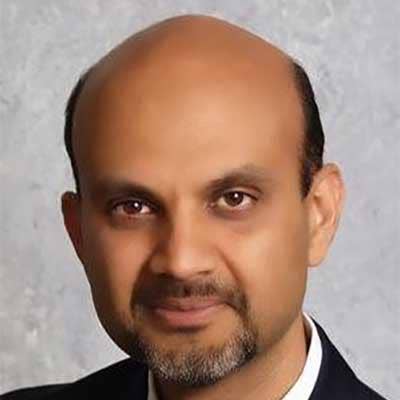
Carbonite
CEO: Mohamad Ali
Dec. 30, 2016: $16.40
March 31, 2017: $20.30
Change: +23.78%
In January Carbonite, a cloud data protection service provider, acquired the Double-Take Software assets of Vision Solutions in a move to expand its service offerings into high availability and data migration. That follows Carbonite's December acquisition of EVault, a provider of disaster recovery and business continuity services.
Both acquisitions are part of Carbonite's expansion beyond its original focus on consumers to providing data backup and other services for small and midsize business.
In February Carbonite reported that revenue in 2016 (ended Dec. 31) increased 52 percent to $207.0 million from $136.6 million in 2015. The company's loss narrowed to $4.1 million in 2016 from $21.6 million the previous year.

Splunk
CEO: Doug Merritt
Dec. 30, 2016: $51.15
March 31, 2017: $62.29
Change: +21.78%
Splunk is a fast-growing developer of real-time operational intelligence software used for security, IT performance management, business analytics and other applications.
In February Splunk reported that in its fiscal 2017 (ended Jan. 31) revenue grew 42 percent to $950.0 million from $668.4 million in fiscal 2016. But the company's loss for the year widened to $355.2 million from $278.8 million the year before.
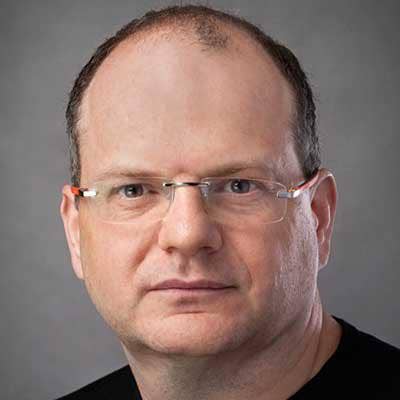
Check Point Software Technologies
CEO: Gil Shwed
Dec. 30, 2016: $84.46
March 31, 2017: $102.66
Change: +21.55%
In January security technology developer Check Point Software Technologies reported that revenue in 2016 reached $1.74 billion, up 7 percent from $1.63 billion in 2015. Net income for the year was $724.8 million, up nearly 6 percent from $685.9 million.
During the fourth quarter the company repurchased 3 million shares at a cost of $248 million.

Western Digital
CEO: Steve Milligan
Dec. 30, 2016: $67.95
March 31, 2017: $82.53
Change: +21.46%
In January storage technology developer Western Digital named former Hewlett Packard Enterprise executive Martin Fink to be the company's new chief technology officer. Fink had served as HPE's CTO and director of HP Labs. Fink succeeds CTO Steven Campbell, who left Western Digital.
For its fiscal 2017 second quarter (ended Dec. 30) Western Digital reported revenue of $4.89 billion, up 47 percent from $3.32 billion in the same period one year earlier. Some of that growth was attributed to the May acquisition of solid-state storage technology company SanDisk for $19 billion. For the second quarter Western Digital reported net income of $235 million, down more than 6 percent from $251 million one year before.
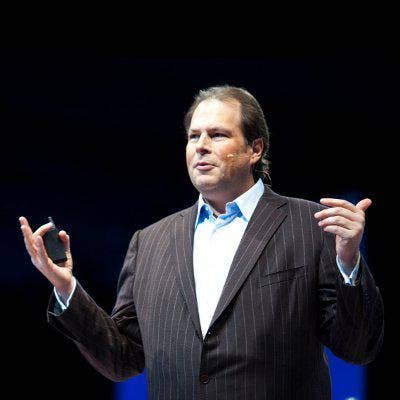
Salesforce.com
CEO: Marc Benioff
Dec. 30, 2016: $68.46
March 31, 2017: $82.49
Change: +20.50%
For its fiscal 2017 ended Jan. 31 Salesforce.com reported revenue of $8.39 billion, up nearly 26 percent from $6.67 billion in fiscal 2016. Perhaps even more significant was the $179.6 million in net income the cloud software company reported for the fiscal year versus the $47.4 million loss in fiscal 2016.
Salesforce is projecting that revenue in fiscal 2018 will be between $10.15 billion and $10.20 billion, a year-over-year increase of 21 percent to 22 percent. CEO Marc Benioff has long vowed to be the first cloud software company to hit the $10 billion revenue threshold.

HP
CEO: Dion Weisler
Dec. 30, 2016: $14.84
March 31, 2017 :$17.88
Change: +20.49%
HP Inc. was created in November 2015 through the split of Hewlett-Packard Co. into HP Inc. and Hewlett Packard Enterprise.
In March the Idaho Department of Administration proposed a deal to acquire HP's Boise, Idaho campus for $110 million.
In February HP reported that revenue in its fiscal 2017 first quarter (ended Jan. 31) grew 3.6 percent to $12.68 billion from $12.25 billion in the same quarter one year earlier. Net income grew 3.2 percent to $611 million from $592 million one year before.

Seagate Technology
CEO: Stephen Luczo
Dec. 30, 2016: $38.17
March 31, 2017: $45.93
Change: +20.33%
In January disk drive manufacturer Seagate Technology reported that in its fiscal 2017 second quarter (ended Dec. 30) revenue declined 3 percent to $2.89 billion from $2.99 billion in the same period one year earlier. Net income, however, grew 80 percent to $297 million from $165 million one year before.

NetApp
CEO: George Kurian
Dec. 30, 2016: $35.27
March 31, 2017: $41.85
Change: +18.66%
After a couple of turbulent years that included declining sales and management changes, NetApp appears to have turned the corner and resumed a growth trajectory. Adding to that momentum was the company's February 2016 acquisition of all-flash storage technology developer SolidFire for $870 million.
In February NetApp reported that revenue in its fiscal 2017 third quarter (ended Jan. 27) increased 1.3 percent to $1.40 billion from $1.39 billion in the same period one year earlier. That included sales of all-flash array systems at an annualized run rate of $1.40 billion. Net income for the quarter was $146 million, down 4.6 percent from $153 million one year before.
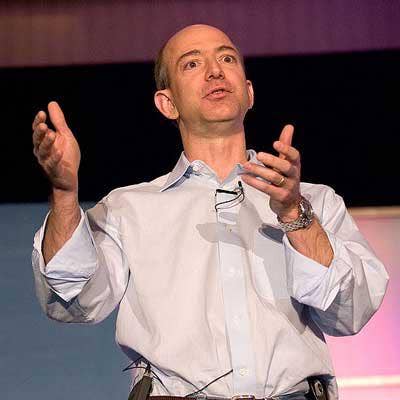
Amazon
CEO: Jeff Bezos
Dec. 30, 2016: $749.87
March 31, 2017: $886.54
Change: +18.23%
In January Amazon said the company would create more than 100,000 new full-time jobs across the U.S. over the next 18 months.
In February the company reported that revenue in its fourth quarter (ended Dec. 31) increased 22 percent to $43.74 billion from $35.75 billion in the same quarter one year earlier. Net income for the quarter was $749 million, up 55 percent from $482 million one year ago.
For all of 2016 Amazon reported revenue of $135.99 billion, up 27 percent from $107.01 billion in 2015. Net income grew four-fold to $2.37 billion from $596 million in 2015.
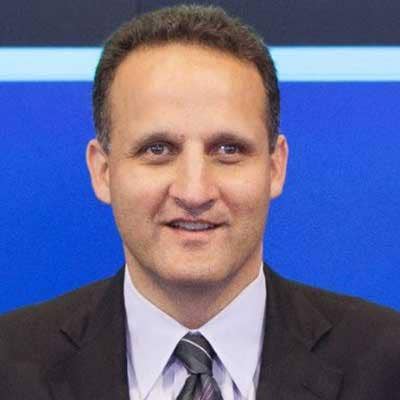
Tableau Software
CEO: Adam Selipsky
Dec. 30, 2016: $42.15
March 31, 2017: $49.55
Change: +17.56%
Business analytics software developer Tableau began the year under new management. On Aug. 22 Tableau named Adam Selipsky as its president and CEO, replacing co-founder and CEO Christian Chabot, who continues as company chairman. Selipsky joined Tableau from Amazon Web Services where he was vice president of marketing, sales and support.
In February Tableau appointed Dan Miller as executive vice president of worldwide field sales, services and support. Miller has more than 30 years of tech sales management experience with Juniper Networks, Hewlett Packard, Sun Microsystems and – most recently – Oracle, where he led the go-to-market sales, strategy and operations for the ISV/OEM and Java businesses.
For all of 2016 Tableau reported revenue of $826.9 million, up 27 percent from $653.6 million in 2015. But the vendor's loss widened in 2016 to $144.4 million from $83.7 million in 2015.

VMware
CEO: Pat Gelsinger
Dec. 30, 2016: $78.73
March 31, 2017: $92.14
Change: +17.03%
While VMware's stock suffered a significant decline in 2015 when the Dell-EMC deal was announced, the stock has bounced back in the last year.
On March 30 VMware unveiled a deal with Dell Technologies under which VMware is repurchasing $300 million of VMware Class A common stock held by a Dell subsidiary. The plan is part of a previously announced $1.2 billion buyback authorization that extends through fiscal 2018. Dell will use the proceeds to repurchase Dell tracking stock for VMware – part of Dell's acquisition last year of EMC, which owned a majority stake in VMware.
For all of 2016, VMware reported revenue of $7.09 billion, up nearly 8 percent from $6.57 billion in 2015. Net income for the year grew more than 19 percent to $1.19 billion from $997 million in 2015.
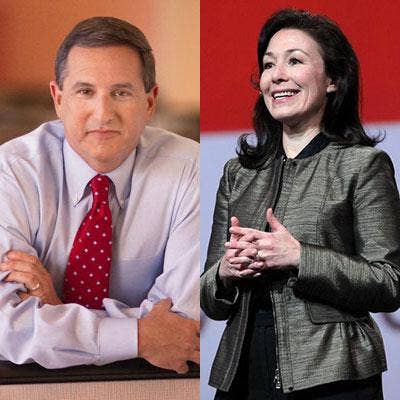
Oracle
Co-CEOs: Mark Hurd, Safra Catz
Dec. 30, 2016: $38.45
March 31, 2017: $44.61
Change: +16.02%
In January Oracle signed a deal to buy Apiary, a provider of tools and framework technology for developing application programming interfaces. Financial terms were not disclosed.
The acquisition comes after Oracle made two major acquisitions in late 2016: cloud application developer NetSuite for $9.3 billion and DNS provider Dyn for a reported $600 million.
For its fiscal 2017 third quarter ended Feb. 28 Oracle reported revenue of $9.21 billion, up more than 2 percent from $9.01 billion in the same quarter one year earlier. Net income grew 5 percent to $2.24 billion from $2.14 billion one year before. The results included a 62 percent year-over-year increase in cloud service revenue.
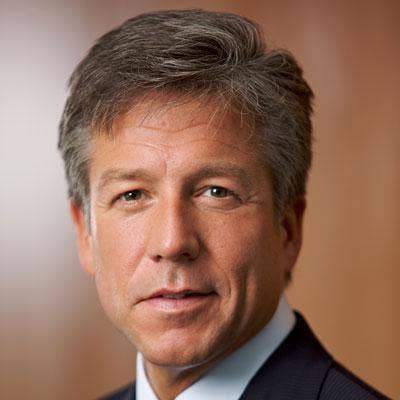
SAP
CEO: Bill McDermott
Dec. 30, 2016: $86.43
March 31, 2017: $98.17
Change: +13.58%
In February SAP's Executive Board recommended that shareholders approve a dividend of 1.25 euros per share, up 0.10 euros or 9 percent from the 1.15 euros dividend paid one year earlier. The annual shareholder meeting is May 10.
For all of 2016, SAP reported revenue of 22.06 billion euros (U.S. $23.54 billion), up 6 percent from 20.79 billion euros (U.S. $22.19 billion) in 2015. Operating profit in 2016 was 5.14 billion euros (U.S. $5.48 billion), up 21 percent from 4.25 billion euros (U.S. $4.54 billion) in 2015.
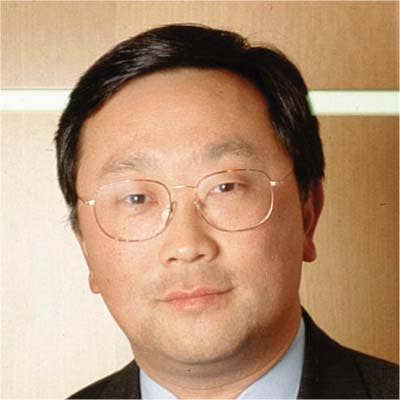
BlackBerry
CEO: John Chen
Dec. 30, 2016: $6.89
March 31, 2017: $7.75
Change: +12.48%
For its fiscal 2017 ended Feb. 28, BlackBerry reported revenue of $1.31 billion, down more than 39 percent from $2.16 billion in fiscal 2016. The company reported a loss of $1.21 billion for fiscal 2017 compared with a loss of $208 million in fiscal 2016.
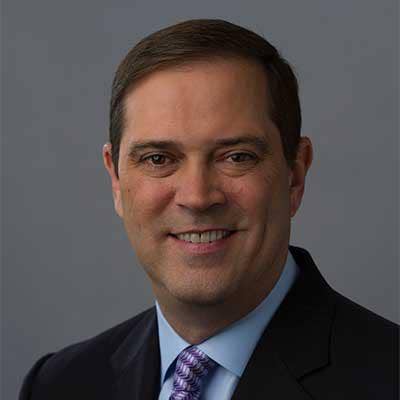
Cisco Systems
CEO: Chuck Robbins
Dec. 30, 2016: $30.22
March 31, 2017: $33.80
Change: +11.85%
In January Cisco announced a deal to buy AppDynamics, a provider of cloud application and business monitoring technology, for $3.7 billion. The acquisition was completed in March.
For its fiscal 2017 second quarter (ended Jan. 28) Cisco reported revenue of $11.58 billion, down 2.9 percent from $11.93 billion in the same period one year earlier. Net income for the second quarter was $2.35 billion, down 25 percent from $3.15 billion one year before.
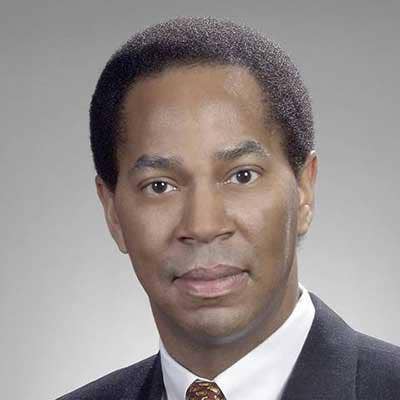
Eaton
CEO: Craig Arnold
Dec. 30, 2016: $67.09
March 31, 2017: $74.15
Change: +10.52%
Power management company Eaton reported in February its results for 2016. Revenue for the year declined more than 5 percent to $19.75 billion from $20.86 billion in 2015. Net income for the year, which was impacted by $211 million in restructuring costs in 2016, was $1.92 billion, down nearly 3 percent from $1.98 billion in 2015.

Lenovo Group
CEO: Yang Yuanqing
Dec. 30, 2016:$12.00
March 31, 2017:$13.12
Change: +9.33%
Lenovo has been hit hard by the worldwide slowdown in PC sales in recent years and increased competition from Dell, Hewlett Packard Enterprise and other data center system vendors.
In January the top ranks of Lenovo's executive team were roiled by the departure of Gerry Smith, chief operating officer and head of the company's PC and mobile device businesses, to become CEO of Office Depot.
In March the company hired former Intel executive Kim Stevenson as senior vice president and general manager of the data center group.
In February Lenovo reported that in its fiscal 2017 third quarter (ended Dec. 31) revenue was $12.17 billion, down 6 percent from $12.91 billion in the same quarter one year earlier. Net income plunged 67 percent to $98 million from $300 million one year before.

Alphabet
CEO: Larry Page
Dec. 30, 2016: $771.82
March 31, 2017: $829.56
Change: +7.48%
In January Alphabet, parent company of Google, said that revenue in 2016 reached $90.27 billion, up 20 percent from $74.99 billion in 2015. Net income was $19.48 billion, up 23 percent from $15.83 billion one year before.
Google CEO Sundar Pichai said during the quarterly earnings call that the company's cloud made major strides in 2016 including accelerating the pace at which new features are rolled out, differentiating its technological capabilities and notching big customer wins.

FireEye
CEO: Kevin Mandia
Dec. 30, 2016: $11.90
March 31, 2017: $12.61
Change: +5.97%
FireEye's stock had been on a long decline – dropping nearly 43 percent in 2016 – before rebounding a bit in the first quarter.
That rebound came despite the company's fourth quarter (ended Dec. 31) earnings report in February, which included revenue that missed Wall Street analyst forecasts. Revenue during the quarter was $184.7 million, essentially flat with the same quarter one year earlier. The vendor did cut its quarterly loss by more than half to $61.5 million from $136.1 million one year ago.
FireEye has also been the subject of acquisition rumors. In February reports surfaced that Symantec had held talks with the company in recent months about a possible buyout.
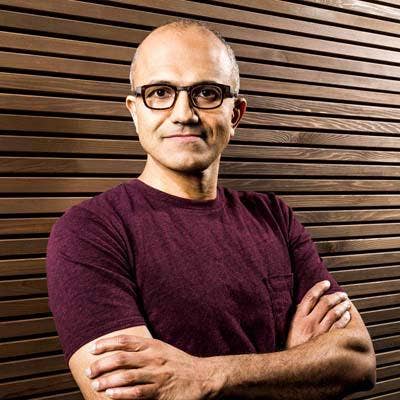
Microsoft
CEO: Satya Nadella
Dec. 30, 2016: $62.17
March 31, 2017: $65.86
Change: +5.94%
Microsoft began the new year just weeks after wrapping up its blockbuster acquisition of LinkedIn, the social media network for professionals, for $26.2 billion. It was the biggest acquisition in the company's history.
In January Microsoft named Kevin Scott, LinkedIn's senior vice president of engineering and operations, to be Microsoft's new chief technology officer.
In January Microsoft reported that in its fiscal 2017 second quarter (ended Dec. 31) revenue was $24.09 billion, up more than 1 percent from $23.80 in the same quarter one year before. Net income was $5.20 billion, up 3.6 percent from $5.02 billion one year earlier.
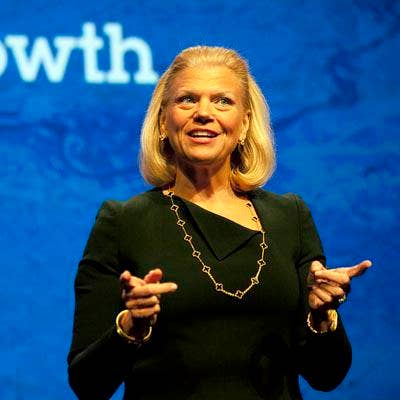
IBM
CEO: Virginia Rometty
Dec. 30, 2016: $165.99
March 31, 2017: $174.14
Change: +4.91%
IBM has been working through a business transformation to focus on high-margin cloud, analytics, mobile, social and security businesses that now account for nearly $33 billion in annual sales – 40 percent of the company's overall revenue.
In January IBM reported that revenue in 2016 declined more than 2 percent to $79.92 billion from $81.74 billion in 2015. Net income for the year declined 11.1 percent to $11.87 billion from $13.36 billion in 2015.

Quantum
CEO: Jon Gacek
Dec. 30, 2016:$0.83
March 31, 2017:$0.87
Change: +4.82%
Storage technology developer Quantum's stock has languished below $1 per share since 2015. But it did increase a few cents in the first quarter, putting it on the positive side of our watch list.
In January Quantum reported that revenue in its fiscal 2017 third quarter (ended Dec. 31) increased 4 percent to $133.5 million from $128.0 million in the same quarter one year earlier. The company even reported a $5.0 million profit for the quarter compared to a $821,000 loss one year before.
On April 3 Quantum announced a 1-for-8 reverse stock split effective at the close of trading on April 18 with common stock trading on the split-adjusted basis on April 19. The number of outstanding shares will drop from approximately 273 million shares to 34 million shares.
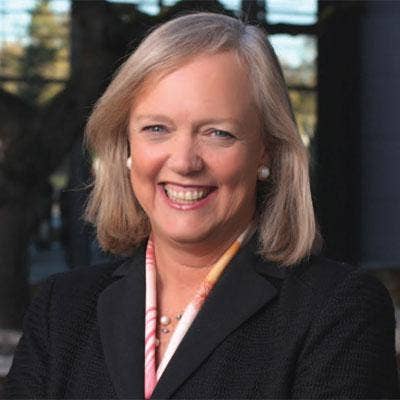
Hewlett Packard Enterprise
CEO: Meg Whitman
Dec. 30, 2016: $23.14
March 31, 2017: $23.70
Change: +2.42%
In January HPE struck a deal to buy hyper-converged infrastructure pioneer SimpliVity for $650 million, an acquisition that was completed on Feb. 17. HPE plans to integrate SimpliVity hardware and software with HPE servers in a bid to grab a share of the fast-growing hyper-converged infrastructure market.
In March HPE signed an agreement to acquire Nimble Storage, a manufacturer of predictive all-flash and hybrid-flash storage systems, for $12.50 per share or $1.0 billion in cash. HPE completed the Nimble acquisition on April 17, after the period covered in this analysis..
On April 3, also after the period covered in this analysis, HPE completed the spin-off of its HPE enterprise services business, which merged with CSC to create the new solution provider DXC. HPE said that deal would deliver approximately $13.5 billion in value to stockholders through an equity stake in DXC, a cash dividend payment, and DXC's assumption of debt and other liabilities.
The price of HPE's stock was adjusted at the start of trading April 3, from the $23.70 March 31 closing price to $18, to account for the 0.086 shares of DXC common stock shareholders received for each share of HPE stock.

Brocade Communications Systems
CEO: Lloyd Carney
Dec. 30, 2016: $12.49
March 31, 2017: $12.48
Change: -0.08%
Networking technology supplier Brocade Communications Systems agreed to be acquired by semiconductor maker Broadcom for $5.9 billion ($12.75 per share) in a deal announced Nov. 2. Broadcom said it planned to retain Brocade's fibre channel SAN switching business and divest Brocade's IP networking operations – including the Ruckus Wireless business Brocade bought earlier in 2016 for $1.2 billion.
In February Arris International reached an agreement to acquire Brocade's Ruckus Wireless and ICX Switch product lines, paying $800 million in cash for those assets, once the Broadcom deal closes.
On March 29 Broadcom struck a deal with Extreme Networks under which Extreme will acquire Brocade's data center networking business when Broadcom completes the Brocade acquisition.

CA Technologies
CEO: Michael Gregoire
Dec. 30, 2016: $31.77
March 31, 2017: $31.72
Change: -0.16%
CA Technologies has been reinventing itself with a focus on systems and cloud management, security and DevOps software.
On Jan. 17 CA said it completed its previously announced acquisition of Automic Holding, a provider of business process and IT automation software, for approximately 600 million euros (U.S. $637 million).
In March CA agreed to acquire application security company Veracode for $614 million in cash. The acquisition was completed on April 3.
In January CA reported that revenue in its fiscal 2017 third quarter (ended Dec. 31) was $1.01 billion, down 3 percent from more than $1.03 billion in the same quarter one year earlier. Net income was $208 million, down nearly 7 percent from $223 million one year before.

Intel
CEO: Brian Krzanich
Dec. 30, 2016: $36.30
March 31, 2017: $36.07
Change: -0.63%
Stagnant PC sales have meant slower revenue growth for Intel in recent years given its dependence on selling processors for that market. The company has struggled to compete in the market for chips for mobile devices, but it has been growing its sales of processors for data center systems, the Internet of Things market, artificial intelligence and other emerging areas.
On March 13 the company unveiled a blockbuster deal to acquire Mobileye, a manufacturer of chip-based camera systems for connected cars, for $15.3 billion.
On March 29 Intel named Aicha Evans to be its chief strategy officer, responsible for driving the chipmaker's long-term strategy to transform from a PC-centric company to a data-centric company.

CenturyLink
CEO: Glen Post
Dec. 30, 2016: $23.78
March 31, 2017: $23.57
Change: -0.88%
In February communications giant Centurylink reported that revenue for all of 2016 was $17.47 billion, down 2.4 percent from $17.90 billion in 2015. Net income for the year was $626 million, down nearly 29 percent from $878 million in 2015.
CenturyLink is in the process of acquiring Level 3 Communications for about $34 billion in cash and stock in a deal announced Oct. 31, 2016. The companies hope to complete that acquisition by the end of this year.

Commvault Systems
CEO: N. Robert Hammer
Dec. 30, 2016: $51.40
March 31, 2017: $50.8
Change: -1.17%
Commvault is a developer of enterprise data protection and information management technologies.
In January Commvault said that revenue in its fiscal 2017 third quarter (ended Dec. 31) was $165.8 million, up 7 percent from $155.7 million in the same quarter one year earlier. But the company reported a $42,000 loss for the quarter compared with net income of $4.9 million one year before.

F5 Networks
CEO: Francois Locoh-Donou
Dec. 30, 2016:$144.72
March 31, 2017:$142.57
Change: -1.49%
In January F5 Networks named Francois Locoh-Donou, senior vice president and chief operating officer at networking vendor Ciena, to be the company's new president and CEO effective April 3. Locoh-Donou replaced longtime CEO John McAdams, who retired.
Also in January F5 Networks expanded beyond its application delivery product focus by launching a line of security products.
For its fiscal 2017 first quarter (ended Dec. 31) F5 Networks reported revenue of $516.0 million, up more than 5 percent from $489.5 million in the same quarter one year earlier. Net income for the quarter was $94.2 million, up 5 percent from $89.7 million one year before.

Juniper Networks
CEO: Rami Rahim
Dec. 30, 2016: $28.26
March 31, 2017: $27.83
Change: -1.52%
In March Juniper Networks reorganized its corporate structure in what the company described as an effort to better support the vendor's innovation strategy. The company's engineering operation now reports to Chief Development Officer Andy Athreya. And the company created the new position of senior vice president, strategy and product line management, with the goal of increasing alignment between strategy and execution. The company appointed Kevin Hutchins, who had been responsible for strategy and business development, to the new post.
In January Juniper Networks reported 2016 revenue of $4.99 billion, up 3 percent from $4.86 billion in 2015. Net income for the year was $601.2 million, down 5 percent from $633.7 million in 2015.

AT&T
CEO: Randall Stephenson
Dec. 30, 2016: $42.53
March 31, 2017: $41.55
Change: -2.30%
On Oct. 22 AT&T announced an agreement to buy global entertainment and media powerhouse Time Warner for $85.4 billion in cash and stock. The acquisition, which AT&T hopes to close this year, is part of a broader trend among telecommunications carriers to add content to their offerings – Verizon's deal to acquire Yahoo being another example.
In January AT&T reported that revenue for all of 2016 was $163.79 billion, up 11.5 percent from $146.80 billion in 2015. But operating income in 2016 was $24.35 billion, down nearly 2 percent from $24.79 billion in 2015.

Citrix Systems
CEO: Kirill Tatarinov
Dec. 30, 2016: $89.31
March 31, 2017: $83.39
Change: -6.63%
On Feb. 1 Citrix completed the spin-off of its GoTo business, which was merged with LogMeIn in a transaction valued at $1.8 billion. Under the deal unveiled in July 2016, Citrix shareholders received 0.1718 shares of LogMeIn stock for each share of Citrix common stock they owned as of Jan. 20.
In January Citrix said that it recorded revenue in 2016 of $3.42 billion, up more than 4 percent from $3.28 billion in 2015. Net income for the year was $536.1 million, up nearly 68 percent from $319.4 million in 2015.
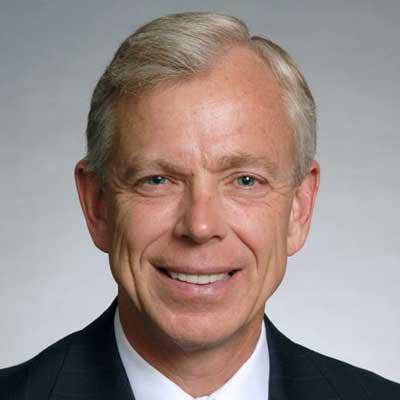
Verizon Communications
CEO: Lowell McAdam
Dec. 30, 2016: $53.38
March 31, 2017: $48.75
Change: -8.67%
On March 31, the last day of the quarter covered in this analysis, Verizon announced a comprehensive restructuring of the company to focus on three areas: Media and Telematics, Network and Technology, and Customer and Product Operations. The company hired former Ericsson CEO Hans Vestberg to lead the Network and Technology operations.
Before that, in February Verizon launched a restructured business unit, Verizon Business Markets, with the goal of reaching more small- and midsize-business customers.
Also in February Verizon said it had renegotiated the price it will pay to acquire Yahoo to $4.48 billion, down $350 million from the $4.83 billion the two companies originally agreed to last year. The companies hope to complete the acquisition this quarter.
In January Verizon reported that operating revenue for all of 2016 was $125.98 billion, down 4.3 percent from $131.62 billion in 2015. Net income was down nearly 26 percent to $13.61 billion from $18.38 billion in 2015.

Netgear
CEO: Patrick Lo
Dec. 30, 2016: $54.35
March 31, 2017: $49.55
Change: -8.83%
In February Netgear reported that in its fourth quarter ended Dec. 31 revenue was $367.9 million, up nearly 2 percent from $360.9 million in the same quarter one year earlier. Net income for the quarter was $22.1 million, up 1.4 percent from $21.8 million one year before.
For all of 2016 Netgear reported revenue of $1.33 billion, up more than 2 percent from $1.30 billion in 2015. Net income for the year was $75.9 million, up 56 percent from $48.6 million in 2015.
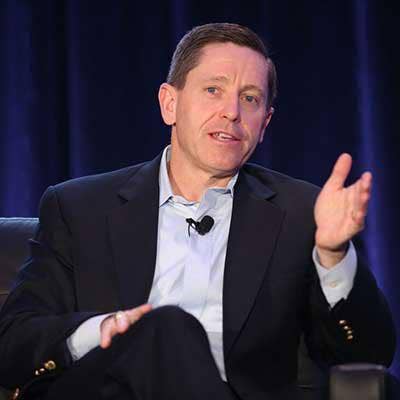
Palo Alto Networks
CEO: Mark McLaughlin
Dec. 30, 2016: $125.05
March 31, 2017: $112.88
Change: -9.89%
In late February Palo Alto Networks disclosed that it had acquired LightCyber and its behavioral attack detection technology for $105 million.
Also in late February the company, after announcing sales for its fiscal second quarter that fell short of expectations, said it was retooling its sales strategy to address "go-to-market execution issues."
For the quarter ended Jan. 31, Palo Alto Networks reported sales of $422.6 million. While that was up 26 percent year over year, it was more than $7 million short of financial analysts' expectations. The company also reported a $60.6 million loss for the quarter compared with a $57.3 million loss in the same quarter one year earlier.
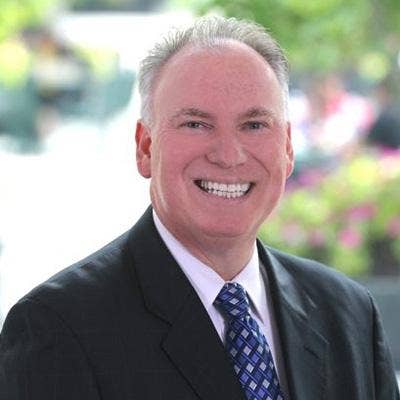
Xerox
CEO: Jeff Jacobson
Dec. 30, 2016: $8.73
March 31, 2017: $7.34
Change: -15.92%
Xerox spent most of 2016 preparing to carry out its plan to split into two companies: One named Xerox focused on printers and other document technology hardware with expected annual sales of $11 billion, and the other named Conduent providing business process outsourcing services with expected annual sales of $7 billion.
The split was effective Jan. 2, 2017. As of that date Ursula Burns became Xerox's chairman and Jeff Jacobson took over as the company's CEO.
On March 29 Xerox unveiled 29 new printers and multifunction devices in what the company said was its biggest product launch in its 110-year history.
In January Xerox reported that revenue in its 2016 fourth quarter (ended Dec. 31) was $2.73 billion, down 7 percent from $2.95 billion in the same period one year earlier. Net income from continuing operations was $181 million, down 29 percent from $256 million one year before.
For all of 2016 Xerox reported revenue of $10.77 billion, down 6 percent from $11.47 billion in 2015. Net income from continuing operations in 2016 was $616 million, down 27 percent from $848 million in 2015.

Nutanix
CEO: Dheeraj Pandey
Dec. 30, 2016: $26.56
March 31, 2017: $18.76
Change: -29.37%
Cloud computing system vendor Nutanix suffered the biggest decline in its stock price in the first quarter of 2017 among all the IT companies on our watch list.
After hitting a high of $33.10 per share on Feb. 15, Nutanix shares fell through the rest of February and then declined more than 37 percent in March – with the share price falling from $31.12 at the close of trading March 2 to $23.00 at the close of trading March 3.
That came after the company reported financial results for its fiscal 2017 second quarter (ended Jan. 31) that include revenue of $182.2 million, up 77 percent from $102.7 million in the same quarter one year earlier. The company's loss for the quarter was $93.2 million, compared with the $33.2 million loss reported one year before.
Despite the solid revenue growth, the company issued guidance for the third quarter that apparently disappointed investors and analysts, leading to the March stock plunge.